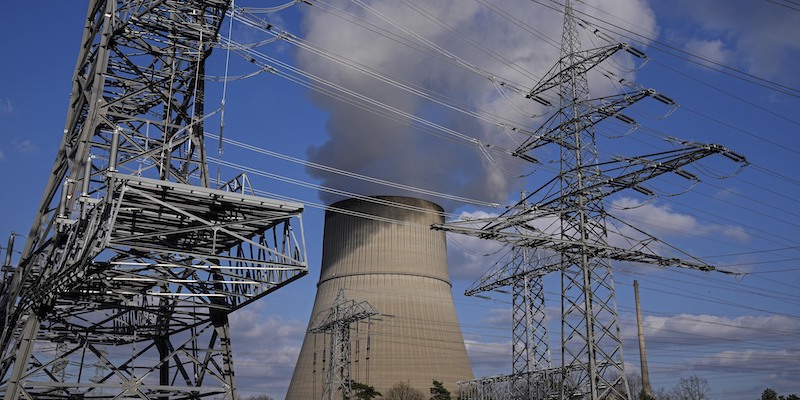Next Saturday in Germany the last three nuclear power plants active in the country will stop working: it is an important moment, not only for German politics but also for European politics, which has been discussing for some time the possibility of investing or not in nuclear power. The issue has become even more urgent after the start of the Russian invasion of Ukraine and the decisions taken at European level, but also by Russia, which had reduced imports of Russian gas to Europe (Germany is still heavily dependent on from Russian gas).
In the last year, the need to become more independent from Russia and to diversify its sources of energy supply has effectively divided Europe in two: some countries in favor of nuclear power, such as France, have invested in their own plants considering them a resource compared to the problems caused by the war. Other countries traditionally against it, such as Germany, have instead adopted policies to completely get rid of their own plants, considering them harmful. According to data updated last August, at the moment there are in Europe 170 nuclear reactors (in a single plant there can be more than one reactor).
The three German plants that will close are located in Bavaria, Baden-Württemberg and in Lower Saxony: in 2022 they had allowed Germany to produce around 6 percent of its own electricity. The three plants should have closed at the end of last year, but the government had decided to keep them open precisely to respond to the energy emergency caused by the war in Ukraine and by Russia’s cut in energy supplies. They will stop working on Saturday, but the decommissioning process will be very long and could last years, as always for plants of this type: among other things, the government does not yet have a precise plan for the disposal of nuclear waste.
The government’s decision to close nuclear power plants has been welcomed by the German anti-nuclear movement, made up of environmental activists who have been calling for the abandonment of nuclear power for decades, citing above all safety risks and the environmental impact of waste. At the same time it has been contested by politicians, experts and a part of environmentalists themselves: according to some, in fact, the end of nuclear power will damage Germany both in economic and ecological terms.
In fact, the closure of the last nuclear power plants implies the need to compensate for the production of electricity in another way, complicating the energy transition process. For the medium-long term, Germany has started the construction of solar and wind power plants, therefore to produce electricity from renewable sources, but in the short term, to fill the part of energy no longer produced by nuclear plants, it has had to rely even more on fossil fuels, going against its climate goals. After the start of the invasion of Ukraine, the German government, for example, increased the use of thermal power plants that burn coal, the fuel which, for the same production, causes the greatest emissions of carbon dioxide, the main gas responsible for the climate change.
It is precisely for this reason that the decision to completely abandon nuclear power is contested by environmentalists themselves. Greta Thunberg, the well-known Swedish climate activist, also intervened in the debate in recent months, saying that closing nuclear power plants is “a bad idea” if it involves the use of coal. British journalist and environmentalist George Monbiot then compared the German nuclear shutdown to Brexit, calling it “a pointless act of self-harm driven by disinformation».
– Read also: Germany’s Great Nuclear Renunciation
In Germany, the anti-nuclear movement has existed for decades and has gotten much stronger over time. But the closure of nuclear power plants has become a priority for successive governments especially since 2011, the year of the Fukushima disaster, which rekindled debates around the world on the safety of nuclear energy. It was after Fukushima that Germany, then ruled by Angela Merkel, decided to make itself completely autonomous from nuclear energy, planning to decommission all 17 German nuclear reactors by 2022.
As mentioned, the plans were called into question with the start of the war in Ukraine. In August 2022, German Chancellor Olaf Scholz hinted at the possibility of keeping the three still active nuclear plants open beyond the end of 2022. The following month, last September, Scholz said that two of the three plants would remain open, to guarantee an emergency reserve during the winter. The latest update dates back to last October, when Scholz announced that the last of the three plants would also remain open until mid-April.
The war in Ukraine seems to have changed the perception of nuclear power also in public opinion: according to a survey carried out last August by Spiegel67 per cent of Germans said they were in favor of extending the activity of the country’s nuclear power plants by five years and 41 per cent of the construction of new plants (in a similar survey carried out around 30 years ago, only the 3 percent said they were in favour).
